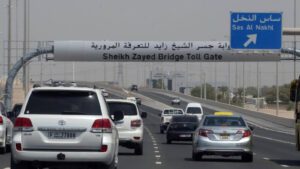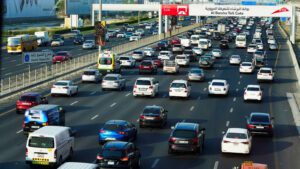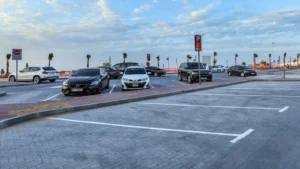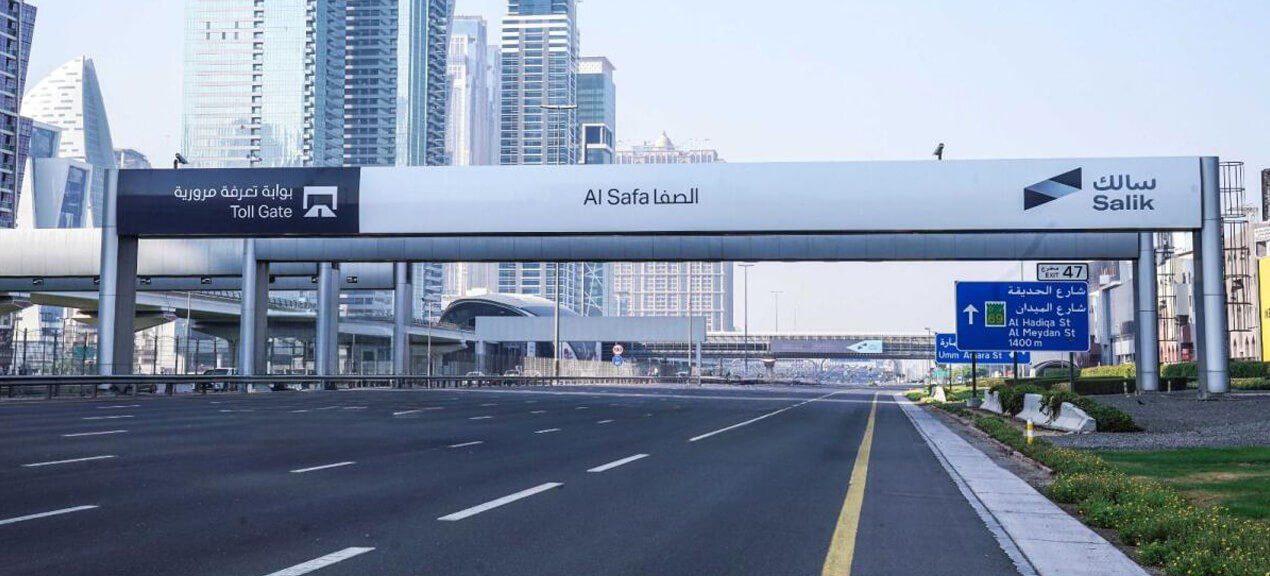Dubai has always been a city that embraces change, especially when it comes to technology, transportation, and urban planning. In 2025, major updates have been introduced parking and toll Rules in the UAE. These changes are designed to manage traffic congestion, reduce peak-hour travel, and encourage better use of public transport. Whether you’re a resident who commutes daily or a tourist navigating the city, understanding these new rules is essential to avoid penalties and save money.
This guide covers everything you need to know about the new variable parking and toll pricing systems in the UAE, particularly in Dubai, including what the changes mean, how they work, and what you should do to adapt.
What Are Variable Parking and Toll Charges?

Variable pricing refers to a system where fees change depending on the time of day, location, and demand. In the case of parking and tolls, this means that you will now pay different rates based on when and where you drive or park your vehicle.
The main objective of this system is to encourage people to avoid driving during peak traffic hours and to better utilize infrastructure throughout the day. It also helps the government manage high-demand areas more efficiently and promote more sustainable transport choices.
New Salik Toll Pricing in Dubai

The Salik toll system, which previously charged a flat fee per gate crossing, has now adopted time-based charges. The new system introduces three main time slots: peak hours, off-peak hours, and toll-free hours.
During peak hours, drivers will be charged a higher fee when passing through toll gates, reflecting the increased demand and congestion on roads during morning and evening rush hours. Off-peak periods are slightly cheaper, providing incentives for those who can plan their travel at less busy times. Finally, there are overnight hours during which tolls are waived entirely to promote off-hour mobility and reduce daytime road strain.
This new pricing model encourages commuters to adjust their schedules, carpool, or consider alternatives like metro, buses, or cycling, particularly during the busiest times of the day.
Parking Fee Changes and Time-Based Pricing

Dubai has also revised its public parking charges to reflect time-based demand. Public and developer-managed parking spaces are now priced according to peak and off-peak periods. Premium zones—usually located in commercial areas, near public transport stations, or busy shopping districts—are more expensive than standard zones during peak hours.
Off-peak parking rates are slightly lower but still contribute to daily parking expenses if not planned carefully. Parking is free overnight and on Sundays, making those times ideal for longer visits to urban areas without incurring charges.
In addition to public parking, special event pricing has been introduced for locations that regularly host exhibitions, conferences, or other large-scale events. During these events, parking rates in surrounding areas increase significantly to discourage private vehicle use and avoid overwhelming the area with traffic.
Peak and Off-Peak Timings
For both tolls and parking, the city is now divided into clearly defined peak and off-peak windows. Typically, peak hours occur during the morning commute (6 AM to 10 AM) and evening rush (4 PM to 8 PM). Off-peak hours fill the rest of the day, usually between 10 AM and 4 PM, and again from 8 PM to 10 PM. Overnight hours, from 10 PM to 6 AM, are generally toll- and fee-free.
It’s important to note that during the month of Ramadan, these timings shift slightly to accommodate changes in daily routines. Understanding these windows can help drivers avoid unnecessary expenses and plan trips more efficiently.
Salik: Variable Toll Pricing System
Starting January 31, 2025, Dubai’s Salik toll system moved from a flat-rate model to one with time-dependent charges. Now:
- Weekday peak hours (6 AM–10 AM & 4 PM–8 PM): AED 6 per crossing
- Weekday off-peak hours (10 AM–4 PM & 8 PM–1 AM): AED 4 per crossing
- Late-night hours (1 AM–6 AM): Toll-free
- Sundays (excluding public holidays or major events): AED 4 all day, with toll-free between 1 AM and 6 AM.
During Ramadan, timings shift to match new traffic patterns:
- Weekday peak (9 AM–5 PM): AED 6
- Weekday off-peak (7 AM–9 AM & 5 PM–2 AM): AED 4
- Late-night (2 AM–7 AM): Toll-free
- Sundays in Ramadan: AED 4 all day, free 2 AM–7 AM
Importantly, commuters passing through multiple toll gates in the same direction within one hour will only be charged once—reducing redundant fare deductions.
Parking: Variable Tariff Policy
On April 4, 2025, Dubai rolled out a variable parking tariff system targeting public and developer-managed parking spots:
- Peak hours (8 AM–10 AM & 4 PM–8 PM):
- Premium zones: AED 6/hr
- Standard zones: AED 4/hr
- Off-peak hours (10 AM–4 PM & 8 PM–10 PM): Same rates as peak
- Night hours (10 PM–8 AM): Free parking
- Sundays & public holidays: Free parking all day
Premium Parking zones (approximately 40% of public spaces, increased from 35%) are in high-demand areas—near metro stations, central districts, and major roads—and are clearly signposted.
Multi-storey car parks (MSCPs), however, remain under a flat model:
- AED 5 per hour
- Cap at AED 40 for durations beyond eight hours
- Open 24/7, year-round — no variable pricing applies
For events around the Dubai World Trade Centre (e.g., GITEX in October, Gulfood in November, etc.), congestion pricing applies:
- AED 25/hr around DWTC during major event days (8 AM–10 PM)
How the Changes Affect Daily Commuters
For those who travel to work or school every day, the cost of commuting during peak hours may now be noticeably higher. If your daily route includes toll gates or paid parking areas, the increase in charges during high-demand periods could significantly impact your monthly budget.
To manage these changes, commuters may need to explore different strategies such as carpooling, changing work hours where possible, or using public transport. Flexible working hours offered by many employers may also help staff avoid commuting during the most expensive times.
How Tourists and Occasional Drivers Are Affected
Visitors to Dubai may not immediately notice the change unless they are renting cars or driving frequently. However, tourists should be cautious when visiting popular attractions or shopping districts during peak periods, as parking could be more expensive. Using taxis, ride-hailing apps, or the metro might be more cost-effective for short stays, especially around downtown or near the Dubai Marina.
For those renting vehicles, it’s advisable to ask rental companies about toll costs and how charges are processed. Most rental vehicles are registered with Salik, and tolls are billed after the rental period ends. With variable pricing, tourists should consider time-of-day travel to minimize charges.
How Businesses Should Adapt
Businesses that rely on logistics, delivery, or transportation services will also need to reassess their operational models. Deliveries made during peak hours may now be more expensive due to higher toll and parking fees. To minimize costs, many companies are shifting to off-peak deliveries or using alternative routes that avoid toll gates altogether.
Retailers and service providers located in premium parking areas may also need to consider the impact of higher parking costs on customer foot traffic, especially during peak times. Some may offer parking validation or discounts during off-peak hours to encourage visits.
Benefits of the New System
Despite the increased costs for some users, there are several long-term benefits to this system. First, variable pricing helps reduce road congestion during peak hours, improving travel time for everyone. Second, it promotes the use of public transportation and shared mobility services, aligning with Dubai’s sustainability and environmental goals. Finally, revenue generated from parking and toll fees can be reinvested into infrastructure improvements and smart transportation systems.
Over time, these changes are expected to lead to more efficient traffic patterns, less road wear and tear, and cleaner air in urban areas.
Tips to Save Money Under the New Rules
To make the most of the new system and avoid excessive charges, here are some useful tips:
- Travel during off-peak or toll-free hours whenever possible.
- Use navigation apps that alert you about tolls and suggest alternate routes.
- Park in standard zones or multi-storey car parks to save on premium parking fees.
- Consider purchasing public transport cards for routine travel within the city.
- Use monthly or corporate parking permits if you regularly use the same parking areas.
- Stay updated with official announcements for special event pricing.
Conclusion
Dubai’s implementation of variable parking and toll charges reflects a forward-thinking approach to urban mobility. While the changes may require some adjustment, they offer a path toward more efficient, organized, and sustainable transport in the city. For residents, tourists, and businesses alike, understanding the new rules and planning accordingly can lead to smoother, more economical travel.
As the city continues to grow and modernize, such dynamic pricing models are likely to become standard practice across the UAE. Embracing these systems today ensures you’re not only saving money, but also contributing to a smarter, greener Dubai.


